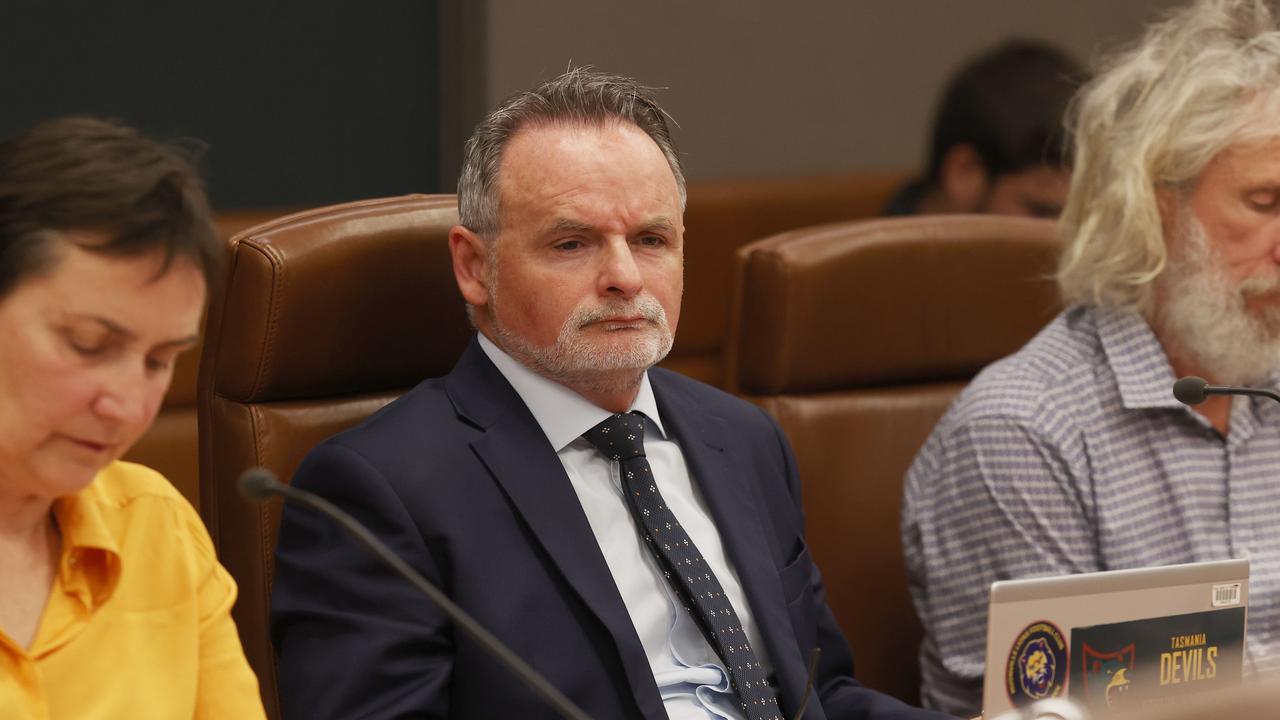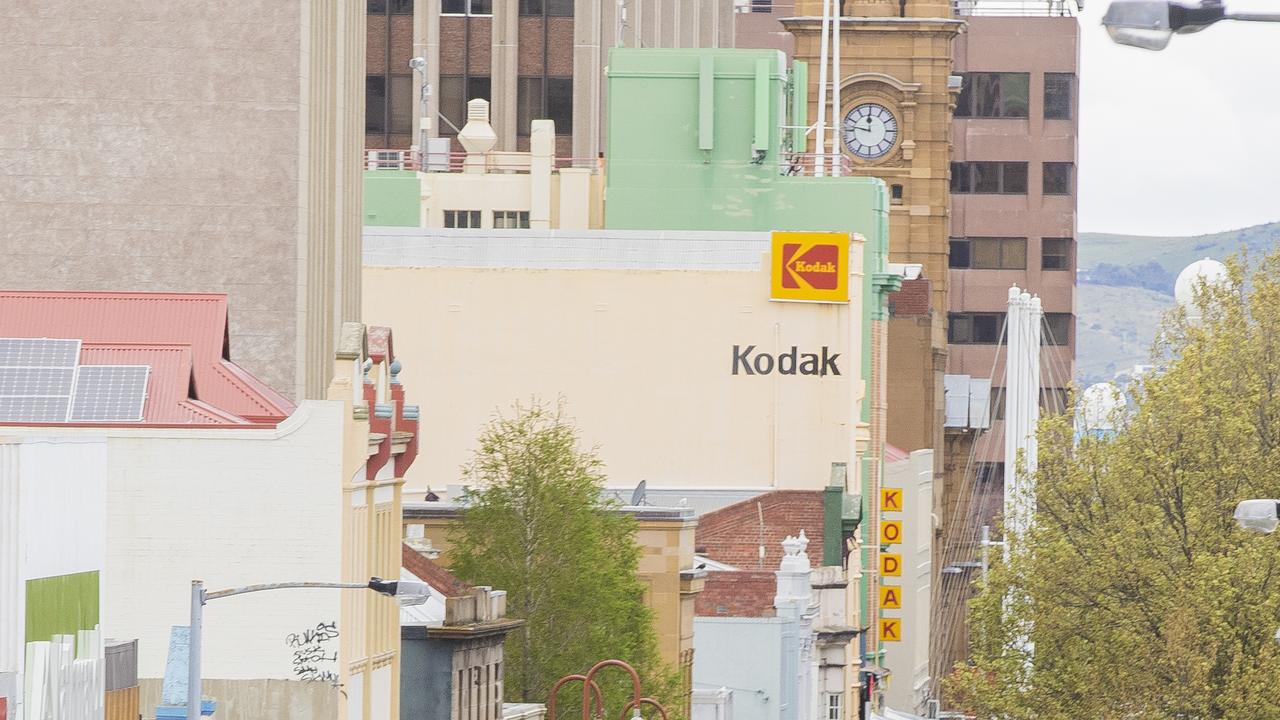Ukrainians desperate to ‘stop Russia’ in protest outside Hobart Town Hall
Ukrainians flocked to Parliament House in Hobart, rallying Australians to stand against Vladimir Putin and Russia’s invasion of their home country. THEIR MESSAGE >>
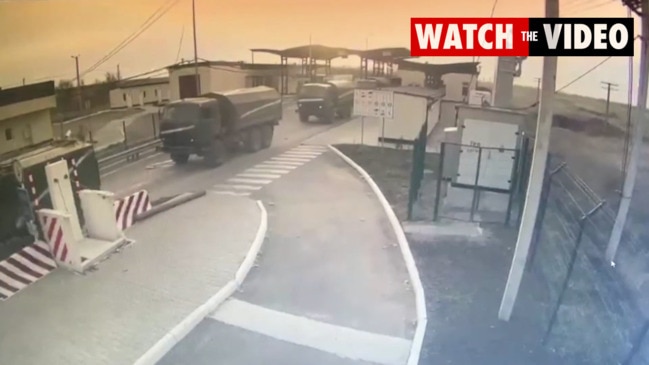
Tasmania
Don't miss out on the headlines from Tasmania. Followed categories will be added to My News.
Ukrainians flocked to Parliament House in Hobart, rallying Australians to stand against Vladimir Putin and Russia’s invasion of their home country.
Lithuanian, Polish, Estonian, and Latvian groups also gathered on the parliamentary lawns to show solidarity with their Eastern European neighbours.
Organiser Oleksandr Tkachuk said he feared for his relatives, saying he did not know whether his nephew was alive or dead.
Mr Tkachuk said he feared for his other family members hiding in Kyiv, which is currently in the grips of Russian armed forces.
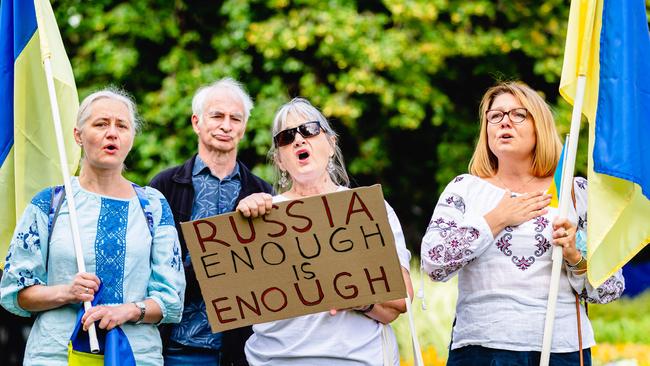
Mr Tkachuk said he wanted Australia to support harsher sanctions on Russia in order to put more economic pressure on Putin.
“The most important thing is to stop war as soon as possible, but what can we do?” he said.
“There are some simple steps, the simplest is to economically impact all Russians – not just oligarchs or rich people.”
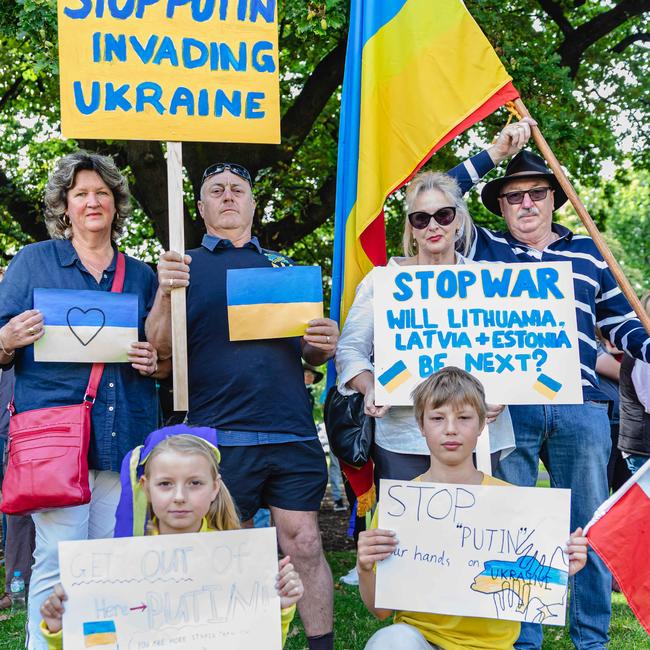
Hobart resident Peter Ladaniwsky said he and his family celebrated Ukraine’s independence every year since the Russians were driven out in 1991.
Mr Ladaniwsky said his people cherished Ukrainian’s hard-won independence, which was now at threat by Russian aggression.
“We’d have celebrations for the past heroes who fought for independence of Ukraine back in the early days,” Mr Ladaniwsky said.
“We want to be united in voice and in thoughts and in prayers to assist in any ways we possibly can.”
12-year-old Polish boy Tobiasz Kozlowski and his 9-year-old sister Klara Kozlowska came brandishing handmade placards to show support for the people of Ukraine.
“It’s surprising how Russia still wants more land and more land and more land and is being greedier and greedier and greedier,” Tobiasz said.
His placard read “Stop Putin your hands on Ukraine,” whereas his sister’s placard declared “Stop the pain in Ukraine.”
“Get out of here, Putin,” Klara said.
“Russia is big enough already.”
UTAS emeritus sociology professor Jan Pakulski said western nations needed to ramp up the economic sanctions against Russian and made sure it hurt.
“The most painful sanctions, I stress again, are those imposed on Putin and his group of rulers including Russian oligarchs,” Professor Pakulski said.
“So the sanctions which hit those groups, which make life for those people more difficult, are most effective and are likely to result in strong pressure.”
‘I can’t talk’: Emotions high for Tasmanian Ukrainians – February 24
Olena Khmarstka’s mother, brother, daughter, grandson and family in Ukraine woke up today to the sound of explosions.
“All my family live in Kyiv,” she said.
Ms Khmarstka has lived in Tasmania for three years, but the rest of her family is in the country’s capital where they could hear a “Russian boom” on Thursday morning amid a military operation from the Kremlin.
She feared war could tear apart her country, and Europe.
When she found out Russia was attempting to invade Ukraine, Ms Khmarstka could barely speak.
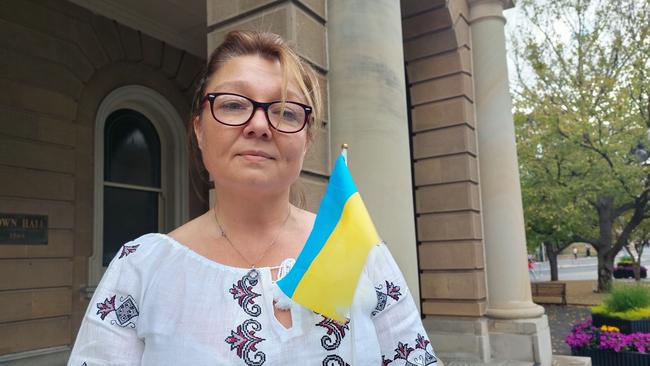
“For me it’s very awful, because I’m here but my family (is) there,” she said.
“I cry, and I scream, and I call my family,” Ms Khmarstka said, too overcome with emotion to finish speaking.
Ms Khmarstka said her family was panicked for the initial two hours, but have since been collecting themselves and deciding what to do next.
“Putin just tyrant and dictator and have problem with brain,” she said.
She said the 70-odd Ukrainians in Tasmania were desperate to support their homeland, with some of the community gathering outside Hobart Town Hall on Thursday evening waving the blue and yellow national flag and holding signs that read “Stop Russia”.
Cars streamed down Macquarie St just after peak hour, with countless drivers beeping their horns and giving the thumbs up in solidarity with the protesters.
Oleksandr Tkachuk attended wearing vyshyvanka – the traditional Ukrainian clothing.
He moved to Australia six years ago.
“That time we decided to move, it was a bad political situation in Ukraine, so we moved,” he said.
His parents, sister and nephew stayed.
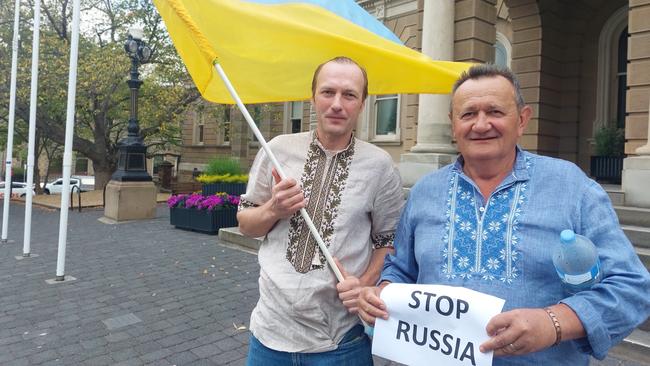
“(I’m) scared about my family and friends because it’s very dangerous and I think it could be a very bad situation,” he said.
“My nephew, who is in Kyiv now, it’s very early morning in Kyiv and he’s going to go to (his) parent’s 200km in another city.”
Mr Tkachuk was unsure of how to help his “scared and frustrated” family.
He hoped the Australian government would support the people of Ukraine “for them to know that they are not alone”.
He said a soldier base in the countryside near his parents’ home had been attacked by rockets on Thursday.
“It’s hard because you can’t actually help, even (give) advice, because you don’t know exactly what (is) happening now,” he said.
Ms Khmarstka’s Australian-Croatian husband Zac Baltic was protesting in solidarity, saying the Croatian War and many previous conflicts should teach a valuable lesson.
“If history teaches us anything, any occupier will be beaten,” he said.
“The Ottoman Empire ruled most of Europe for (hundreds of) years and still most of the countries fought and kicked them out.”



